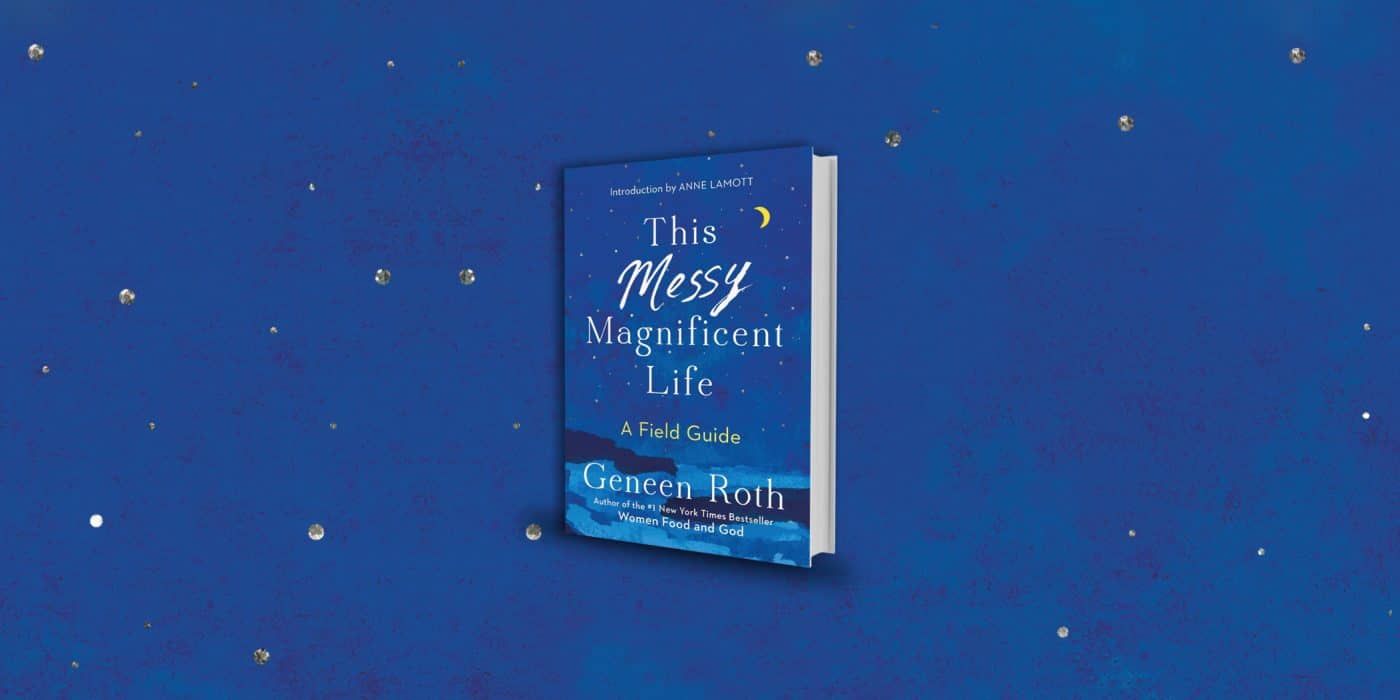Geneen Roth has been one of the leading women’s voices in examining and transforming the relationship between food, self-worth and love. Parvati Magazine’s wellness editor, Dr. Karen Ho, spoke with her about her latest book, “This Messy, Magnificent Life”, on living authentically, moment-by-moment.
Parvati Magazine: You speak about “The Me Project” in your most recent book, about trying to fix our perceived imperfections and what is “broken”. How does this relate to messy, magnificent living?
Geneen Roth: The book started with a question of what it would be like to drop the “Me Project”, since I had been trying to fix myself through therapy for many years. Not only is it exhausting, it doesn’t really work. The core structures, the identities were still there. The ways in which I was trying to fix myself were not fixing it, as if I needed to get rid of certain aspects of myself. After years of meditation, I developed a different kind of relationship with what I had felt was broken, from the place of non-judgment. [It’s about] being inside your body—occupying this piece of the physical universe you have been given in this life, becoming aware of sensation. Really occupying this space changes how you see what needs to change, because you are now getting signals from your body about what feels right, who to move closer to, who to step away from. You start relying on inner GPS, and this is different from relying on cultural ideas from other people. To base our idea of ourselves on what the culture tells us how to look or to behave gets us far away from our internal guidance.
PMAG: In this book, you continue to untangle a lot of the myths about our perceptions of our bodies, our distorted relationships with food, and shed light on the sense of scarcity associated with dysfunctional eating.
GR: As I became more interested, open, accepting and curious about how I was using food, this started a different process within myself.
If you’re eating from hunger, then that’s exactly what you need to do. If you are eating to mask sadness, or from a desire to feel comforted, it might take your attention from the sadness for a moment, but in the end, you still have the sadness and possibly shame, and fullness from having eaten when you didn’t really need it. It only doubles the shame. It doesn’t take the pain away.
Paying attention to that moment is a big part of it. But also, what you are paying attention to matters, and how. I suggest paying attention with kindness and curiosity. If you are feeling sorrow, abandoned, rejected, you turn towards that rather than away. As you turn towards something, you notice that that which is paying attention to the sadness, is bigger than the sadness. As you pay attention, you notice that you are more than just the sorrow. This is awareness. In so doing, you are not feeding or allowing your addiction to be activated. Feelings really just need to be recognized and met with kindness. This then helps those feelings to relax.
The self-judgment, shame, deprivation—we somehow believe that growth can’t happen without these things, without suffering. This is a misconception; that voice of judgment and cruelty actually paralyzes us, keeps us small and from taking risks.
I also emphasize that we are talking about facing the moment. In this moment, what does the emotion feel like? If it is sadness, what does it feel like in my chest? Does it have a shape, a colour, or volume? I am not talking about turning around and facing the entire backlog within our psyche. Things come up when they will, and they come up in the moment. You don’t have to go looking for it.
PMAG: I came away with a sense that this book is about celebrating the process of learning, feeling, and continually getting better at creating a life that is a daily meditation of being alive.
GR: That’s very lovely. This book looks at [how] when we are suffering, it’s because we’re merged with the voice of judgment, and making up stories about a situation and believing these stories. These stories often do not have much to do with the situation itself. When people begin to realize that they are entrancing themselves [with] these painful stories, they often discover a freedom, a spaciousness. They don’t have to live in the prison of their own fear and negativity for the rest of their lives.
Geneen Roth is the author of ten books, including New York Times bestsellers “When Food Is Love”, “Lost and Found” and “Women Food and God”. Over the past thirty years, she has worked with thousands of people in her groundbreaking workshops and retreats and has appeared on numerous national shows. Learn more about Geneen here.












